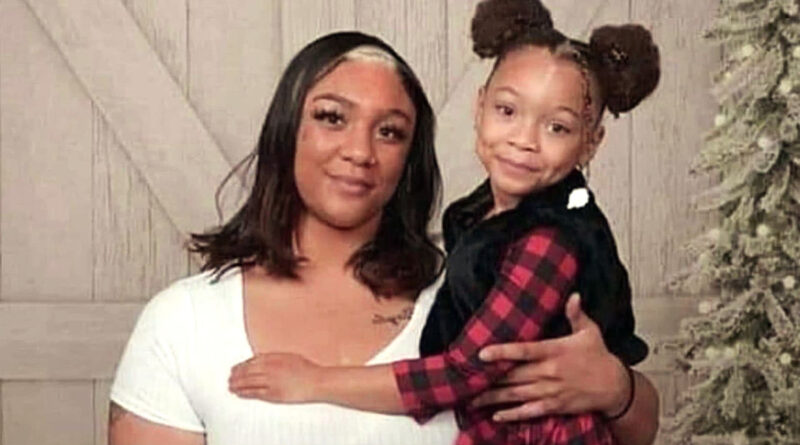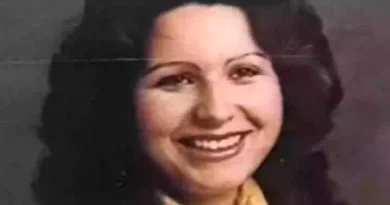Meshay Melendez and Layla Stewart Disappearance and Murder in Vancouver Washington
On March 12, 2023, the peaceful city of Vancouver, Washington, was shaken by the sudden and mysterious disappearance of 27-year-old Meshay Melendez and her 7-year-old daughter, Layla Stewart. This seemingly normal day would soon be marked as one of unimaginable loss for their loved ones and the entire community.
Meshay was known as a loving mother and a vibrant young woman. Her daughter, Layla, was a cheerful, playful child adored by all who knew her. But on this fateful day, they vanished without a trace, setting off a frantic search effort by family, friends, and law enforcement.
Last seen in the early morning hours of March 12, 2023, Meshay and Layla were reportedly with Meshay’s ex-boyfriend, Kirkland Warren. Witnesses later told police that Meshay appeared unconscious in the passenger seat of Warren’s car. Layla was seen being carried from a friend’s house into the car, and the two were never seen alive again.
As hours turned into days, their disappearance gained local media attention. Flyers were distributed, social media posts flooded timelines, and community members held out hope for their safe return. But as the days passed with no news, fears grew that something terrible had happened.
The Chilling Discovery of Their Bodies
Ten days after their disappearance, on March 22, 2023, a horrifying discovery was made. A 911 call to the Clark County Sheriff’s Office reported the sighting of what appeared to be two life-sized mannequins in a rural, wooded area near Washougal, Washington. When police arrived, they made a gruesome discovery: the bodies of Meshay Melendez and her 7-year-old daughter, Layla Stewart.
The bodies were found together, further confirming the community’s worst fears. Meshay had suffered a fatal gunshot wound to her left temple, while young Layla had been shot twice in the head. Their deaths were not accidental. This was an execution.
Forensic evidence would later reveal that Layla’s body bore further signs of abuse. Investigators determined that she was sexually assaulted before her death. DNA evidence linked Kirkland Warren to the crime, further implicating him in what would later be classified as a calculated and heinous double murder.
The discovery devastated their family, friends, and the Vancouver community. The loss of two innocent lives — one of them a child — shook everyone to the core.
The Role of Domestic Violence in the Tragedy
It later became clear that Meshay and Layla were victims of a long-standing cycle of domestic abuse at the hands of Kirkland Warren. This case became a grim example of the dangers posed by abusers who are left unchecked by the legal system.
Kirkland Warren had a violent history. In 2017, he had been charged with murder in Arkansas but was released on bond. While in Vancouver, he continued his violent behavior. Meshay had previously filed a restraining order against him after he fired shots into her apartment. Despite this, he was released on bail, even after violating a no-contact order by calling Meshay from jail.
The Tiffany Hill Act, named after another Vancouver woman killed by her abuser, allows judges to require GPS ankle monitors for abusers who violate protection orders. However, this measure is discretionary, not mandatory. In this case, it was not used.
Many questioned how Warren was allowed to walk free, despite his violent history. Critics argued that the justice system failed to protect Meshay and Layla, giving Warren the opportunity to carry out his horrific crimes.
The Arrest and Trial of Kirkland Warren
After the discovery of the bodies of Meshay and Layla, police quickly turned their attention to Kirkland Warren. His history of domestic abuse, his violation of court orders, and the fact that he was the last person seen with Meshay and Layla made him the primary suspect.
Warren was charged with two counts of murder, first-degree aggravated murder for the killing of Layla, and second-degree murder for the killing of Meshay. He was also charged with child molestation due to the evidence of sexual abuse found on Layla’s body.
Initially, Warren pleaded not guilty to the charges. His defense claimed that there was no direct evidence linking him to the murders. However, the prosecution built a strong case using witness statements, phone records, and DNA evidence. As the trial approached, public interest grew, and many awaited justice for the innocent victims.
But just days before his trial was set to begin, Warren changed his plea. On September 2024, he pleaded guilty to all charges, including first-degree aggravated murder, second-degree murder, and first-degree child molestation. His guilty plea spared the family the pain of a long trial but did not erase the pain caused by his actions.
On October 8, 2024, a Clark County Superior Court judge sentenced Warren to life in prison without the possibility of parole. This sentence ensured that he would never be free again. But for the family of Meshay and Layla, justice was bittersweet. No sentence could bring their loved ones back.
The Community’s Call for Reform and Change
The deaths of Meshay and Layla revealed glaring gaps in the justice system. Community members, domestic violence advocates, and organizations like the YWCA of Clark County voiced outrage over how the system failed to protect them.
The YWCA raised critical questions that remain unanswered:
- Why was Kirkland Warren’s bail so low, given his existing murder charge in Arkansas and his violent actions toward Meshay?
- Why was Warren released after violating a protection order by calling Meshay from jail?
- Why was Warren not issued a GPS ankle monitor under the Tiffany Hill Act?
These questions highlight systemic failures that must be addressed to prevent future tragedies. The YWCA emphasized the need for stronger enforcement of the Tiffany Hill Act, which could have alerted Meshay if Warren was nearby. They also called for reforms in the handling of domestic violence cases to prioritize the safety of survivors.
In response to the tragedy, the community held a vigil at Esther Short Park in Vancouver on March 26, 2023. The event was attended by family members, city officials, and local advocates. They gathered to honor the lives of Meshay and Layla while calling for change.
Statements from the Family
The deaths of Meshay and Layla left their family devastated. Their loved ones spoke out during court proceedings and at community events, sharing their grief and anger.
Layla’s aunt, Lashay Gates, gave an emotional statement, saying, “I can’t even make any more memories. The seven years was all I had. And it’s all because of Kirkland Warren. And I want him to suffer every single day. I want him to be hurt like I’ve been hurt.” Her words echoed the pain felt by the entire family.
Layla’s father also shared his heartbreak, reflecting on all the milestones she would never get to experience. “Losing a child is an unimaginable tragedy, and it’s hard to think of all the milestones she will never get to experience,” he said.
For Meshay’s mother, Nichole Norris, the loss was profound. “The day I lost them, I lost a part of myself. A part of me died with my girls. I am no longer a girl mom. I am no longer a grandmother.” Her statement laid bare the raw and irreparable pain caused by the loss of her daughter and granddaughter.
Remembering Meshay and Layla
The deaths of Meshay Melendez and Layla Stewart are a tragedy that will never be forgotten. Their story highlights the failures of the legal system, the dangers of unchecked abusers, and the importance of protecting survivors of domestic violence.
Their legacy lives on in the calls for reform. Advocates continue to push for stronger enforcement of the Tiffany Hill Act, increased funding for domestic violence services, and accountability for judicial decisions that put survivors at risk.
The Vancouver community has vowed to ensure that Meshay and Layla’s deaths were not in vain. Their story has become a symbol of the urgent need for change in how domestic violence cases are handled. Through public pressure, legislative advocacy, and community action, the hope is that no other family will have to experience the same devastating loss.
If you or someone you know is experiencing domestic violence, please seek help. Call the YWCA’s 24-hour SafeChoice Domestic Violence Hotline at 1-800-695-0167 or the National Domestic Violence Hotline at 1-800-799-7233. You are not alone. Help is always available.
Discover more from City Towner
Subscribe to get the latest posts sent to your email.




